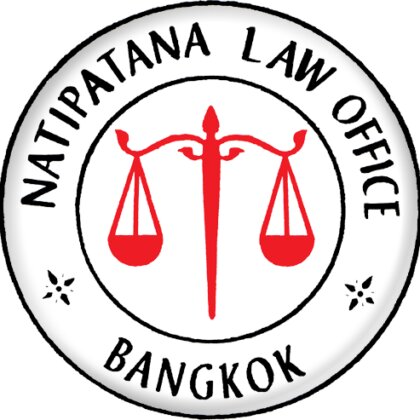Best Real Estate Contracts and Negotiations Lawyers in Phuket
Share your needs with us, get contacted by law firms.
Free. Takes 2 min.
Free Guide to Hiring a Real Estate Lawyer
List of the best lawyers in Phuket, Thailand
Legal guides written by SIAM LEGAL INTERNATIONAL:
- Defamation Laws in Thailand: Criminal Charges and Civil Suits
- The State of Thailand’s Long-Term Resident (LTR) Visa Program in 2025
- The Penalties Of Not Filing Your Income Tax Return As A Foreigner In Thailand
Thailand Real Estate Contracts and Negotiations Legal Questions answered by Lawyers
Browse our 2 legal questions about Real Estate Contracts and Negotiations in Thailand and read the lawyer answers, or ask your own questions for free.
- Selling my property in Krabi
- I'm the owner of a condominium in Krabi and have a ready foreign buyer. How can I get assistance to draft a sales contract between me and the buyer for a full sale without a property agent?
-
Lawyer answer by SB Law Asia
Our firm are experts in Thai property law and would be very pleased to assist you in this matter. Please feel free to contact us directly. The initial consultation is free.
Read full answer - Estate dealer Will not pay back.
- My Thai wife has paid money to an estate dealer for a land plot, the land should have been ready for overtaking, but due to different reasons it is not ready for overtaking, according to the contract, my wife should be able to get her money back, but the estate... Read more →
-
Lawyer answer by GPS Legal
GPS Legal has extensive experience in Real Estate Law, Contract Law, and dispute resolution in Thailand. If you choose to hire an attorney, please contact us directly
Read full answer
Thailand Real Estate Contracts and Negotiations Legal Articles
Browse our 9 legal articles about Real Estate Contracts and Negotiations in Thailand written by expert lawyers.
- 5 Common Legal Pitfalls in Thai Real Estate and How to Avoid Them
- Nestled within the paradisiacal landscapes and burgeoning economic dynamism of Thailand lies a high-stakes real estate market rife with both rapturous potential and formidable legal complexities. This idyllic Southeast Asian terrain has emerged as a globally-coveted destination for luxury residential developments, commercial property investments, and ambitious real estate endeavors spanning... Read more →
- How Foreigners Can Own Property in Thailand
- For foreigners considering property ownership in Thailand, understanding the process and relevant laws is crucial. These laws are not typically compared to the property ownership laws of other countries, as the Kingdom strictly regulates which foreigners can own property, the circumstances under which they can do so, and the types... Read more →
- Tax Implications of Buying Property in Thailand: A Comprehensive Guide
- You might be an expat in Thailand hunting for your next property investment, and interested in buying a condo in one of the world’s fastest-moving cities, Bangkok; or perhaps you’re an investor who is also in awe of the stunning and ever-popular vacation island of Phuket, or a retiree considering... Read more →
About Real Estate Contracts and Negotiations in Phuket, Thailand
Real estate contracts and negotiations in Phuket, Thailand, can be a complex area of law that requires a keen understanding of local and national legal frameworks. The real estate market in Phuket is vibrant, attracting investors, expatriates, and locals alike. As such, navigating the intricacies of contracts and negotiations can be challenging without specialized knowledge, particularly given the nuances of Thai property laws and regulations.
Law in Phuket, Thailand: A Brief Overview of Real Estate Contracts and Negotiations
In Phuket, real estate contracts and negotiations are governed by a blend of local and national regulations. Key elements include the Civil and Commercial Code of Thailand, land ownership laws, and foreign ownership restrictions. Real estate transactions often involve contracts such as sale and purchase agreements, leases, and option contracts, all of which must comply with specific legal requirements to ensure enforceability. It's essential to understand the terms and implications of these contracts, which can vary significantly depending on the type of property and the parties involved.
Why You May Need a Lawyer
Engaging a lawyer for real estate contracts and negotiations in Phuket can be beneficial in numerous scenarios including:
- Purchasing property: Ensuring the transaction complies with Thai law, especially for foreign purchasers facing ownership restrictions.
- Leasing agreements: Negotiating terms favorable to both landlords and tenants while ensuring compliance with legal standards.
- Dispute resolution: Handling disputes arising from real estate transactions, such as breach of contract or title issues.
- Due diligence: Undertaking thorough due diligence to uncover any hidden issues affecting the property transaction.
- Contract drafting: Creating contracts that clearly outline the terms and conditions agreed upon by the parties involved.
Local Laws Overview
Key aspects of local laws impacting real estate contracts and negotiations in Phuket include:
- Foreign Ownership: While foreigners cannot directly own land, they can own condominium units or lease land on a long-term basis.
- Leasehold Agreements: Common for foreigners, these contracts typically offer lengths up to 30 years and may include renewal options.
- Due Diligence: Ensuring the legal status of the property, verifying title deeds, and checking any encumbrances or liens.
- Contracts: Must be in writing and adequately stamped, detailing the rights and obligations of each party involved in the transaction.
- Land Code Act: Governs property ownership, transfer, and right of use in Thailand, providing a framework for lawful transactions.
Frequently Asked Questions
Can foreigners own land in Phuket?
No, foreigners cannot own land directly in Phuket, but they can own condominium units or engage in long-term leases.
What is a due diligence process in real estate transactions?
The due diligence process involves verifying the legal status of the property, confirming the accuracy of title deeds, and checking for any existing encumbrances.
How long can a foreigner lease land in Phuket?
Foreigners can enter into lease agreements for periods up to 30 years, with options to renew under specific conditions.
What happens if a real estate contract is breached?
If a contract is breached, legal remedies may include damages, specific performance, or contract termination, depending on the contract terms and severity of the breach.
Are verbal agreements binding in Phuket real estate transactions?
Real estate transactions require written agreements to be enforceable under the Land Code Act and Thai law.
Do I need a lawyer to buy property in Phuket?
While not mandatory, hiring a lawyer is advisable to navigate complex legal requirements, draft contracts, and conduct due diligence.
What taxes apply to real estate transactions in Phuket?
Applicable taxes may include transfer fees, withholding tax, and specific business tax, calculated based on the property value and transaction type.
How are property disputes resolved in Thailand?
Property disputes are generally resolved through negotiation, mediation, or litigation in Thai courts, depending on the dispute's nature and agreement terms.
What is an option agreement in real estate?
An option agreement gives a buyer the right, but not the obligation, to purchase property at a specified price within a certain timeframe.
Can leasehold agreements be renewed after their term expires?
Leasehold agreements may include renewal clauses, allowing for potential extensions subject to mutual agreement and compliance with legal requirements.
Additional Resources
For further assistance, consider reaching out to the following resources:
- Land Department of Thailand: Provides official information and guidance on land-related matters.
- Phuket Provincial Office: Local governmental body offering resources and assistance relevant to property and real estate.
- Thai Real Estate Association: Offers insights, resources, and professional guidance for property investors and stakeholders.
- Legal firms specializing in property law: Provide expertise in navigating complex real estate transactions and disputes.
Next Steps
If you need legal assistance in real estate contracts and negotiations in Phuket, consider the following steps:
- Conduct thorough research to find a qualified real estate lawyer experienced in Thai property law.
- Arrange consultations with potential lawyers to discuss your specific needs and obtain legal advice.
- Gather all relevant documents related to your real estate transaction or dispute for review by your legal representative.
- Follow your lawyer's guidance on executing contracts, conducting due diligence, and navigating any legal challenges that arise.
Lawzana helps you find the best lawyers and law firms in Phuket through a curated and pre-screened list of qualified legal professionals. Our platform offers rankings and detailed profiles of attorneys and law firms, allowing you to compare based on practice areas, including Real Estate Contracts and Negotiations, experience, and client feedback.
Each profile includes a description of the firm's areas of practice, client reviews, team members and partners, year of establishment, spoken languages, office locations, contact information, social media presence, and any published articles or resources. Most firms on our platform speak English and are experienced in both local and international legal matters.
Get a quote from top-rated law firms in Phuket, Thailand — quickly, securely, and without unnecessary hassle.
Disclaimer:
The information provided on this page is for general informational purposes only and does not constitute legal advice. While we strive to ensure the accuracy and relevance of the content, legal information may change over time, and interpretations of the law can vary. You should always consult with a qualified legal professional for advice specific to your situation.
We disclaim all liability for actions taken or not taken based on the content of this page. If you believe any information is incorrect or outdated, please contact us, and we will review and update it where appropriate.















